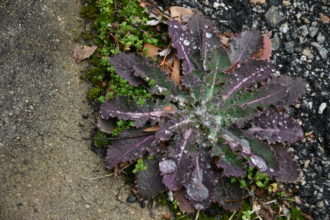GRIFFIN, Georgia – The Southern Sustainable Agriculture Research and Education program has announced the funded projects for the 2021 Research and Education Grant Program.
Southern SARE’s Research and Education Grants are the flagship grants of the program. They were the first grants offered when the program was launched in 1988, and were the only sustainable agriculture grants available to researchers and educators until additional grant programs were added to SSARE in 1994.
SSARE offers two grant programs within the Research and Education Grant category: Research Grants and Education Grants.
Research Grants are competitive research grants for teams of interdisciplinary researchers that encourage a systems approach in sustainable agriculture. Education Grants accommodate organizations, institutions and individuals who are interested in education-based projects, rather than research-driven projects.
In 2021, the SSARE Administrative Council funded 16 projects totaling $3,444,402.
Research grants
LS21-353 Evaluating the Dual-Purpose of Chickpea: A Cash and Cover Crop for Agricultural Production Systems in the Southeast, University of Florida, $397,648 , MD Ali Babar, mababar@ufl.edu
LS21-354 The Use of Cyanobacteria Biofertilizers to Increase Crop Productivity, Improve Soil Health, and Agricultural Sustainability in Florida, $242,000 , Florida International University, Sanku Dattamudi, sankuinpan@gmail.com
LS21-355 Gullah/Geechee Agro-Culture: Sustaining Culture to Sustain Agriculture in the Lowcountry, University of South Carolina Beaufort, $341,346, Najmah Thomas, nthomas2@uscb.edu
LS21-356 Securing Land Tenure Rights for Heirs Property Owners, Land Loss Prevention Project, $400,000, Savi Horne, Savi@landloss.org
LS21-357 Southern Pasture-Raised Beef: From Farm to Table to Us, Duke University School of Medicine, $380,203, Stephan van Vliet, Stephan.vanvliet@duke.edu
LS21-358 Small Farms and Big Market Barriers, Fort Valley State University, $400,000, Niki Whitley, whitleyn@fvsu.edu
LS21-359 Strengthening Farmer-consumer Connections for Sustainable Agricultural Systems, Furman University, $213,954, Courtney Quinn, Courtney.quinn@furman.edu
LS21-360 Specialty Pumpkin: Laying the Groundwork for an Emerging Crop and Lucrative Products, University of Florida, $399,999, Geoffrey Meru, gmeru@ufl.edu
LS21-361 Economic Benefits and Marketing Implications of Co-Labeling Strategies for Small Organic Producers, University of Georgia, $128,373, Vanessa Shonkwiler, V.shonkwiler@uga.edu
LS21-362 How Technology Enhances or Impedes Sustainable Agriculture for Black Limited Resource Farmers in the Southeast Black Belt Region, McIntosh SEED, $200,000, John Littles Sr., johlit@darientel.net
Education
LS21-346 Empowering Southern Sustainable Farmers with Proactive, Community-centered Farm Law Education, Resources, and Networks, Farm Commons, $45,096, Eva Moss, eva@farmcommons.org
LS21-347 Farmer Direct Sales During and After COVID-19, Appalachian Sustainable Agriculture Project, $50,000, Molly Nicholie, molly@asapconnections.org
LS21-348 Principles of Soil Health in a Variety of Market Farming Frameworks: Best Practices from the Field with Experienced Regenerative Farmers, No-Till Growers, $48,000, Jackson Rolett, farmerjackson@notillgrowers.com
LS21-349 Regenerative Land and Livestock Management for Women, National Center for Appropriate Technology, $49,972, Linda Coffey, lindac@ncat.org
LS21-350 Puerto Rico Goat and Sheep Educational Program Initiative, University of Puerto Rico, $48,036, Abner Rodriguez, abner.ridriguez3@upr.edu
LS21-351 Saving Seed for Resilient Local Systems: An online, video based course on saving seed from the Utopian Seed Project, Utopian Seed Project, $49,775, Rejoice Blackwood, rejoice@acorncommunity.org
LS21-352 Training MS Farmers and Producers with Alternative Farming Practices Including Intercropping, $50,000, Milestone Cooperative Association, Calvin Head, calvinwhcdo@yahoo.com
Southern SARE is a USDA-funded program that provides funding opportunities for researchers, farmers, Cooperative Extension, NGOs, government agency personnel, and other ag professionals to conduct research in sustainable agriculture. Authorized in the 1985 Farm Bill, the mission of the SARE program is to promote sustainable agriculture practices throughout American agriculture that are profitable for the farmer, protect the environment, and promote community quality of life over the long term.
For more information on Southern SARE, visit http://www.southernsare.org.
Published by the Southern Region of the Sustainable Agriculture Research and Education (SARE) program. Funded by the USDA National Institute of Food and Agriculture (NIFA), Southern SARE operates under cooperative agreements with the University of Georgia, Fort Valley State University, and the Kerr Center for Sustainable Agriculture to offer competitive grants to advance sustainable agriculture in America’s Southern region. This material is based upon work that is supported by the National Institute of Food and Agriculture, U.S. Department of Agriculture, through Southern Sustainable Agriculture Research and Education. USDA is an equal opportunity employer and service provider. Any opinions, findings, conclusions, or recommendations expressed in this publication are those of the author(s) and do not necessarily reflect the view of the U.S. Department of Agriculture.
